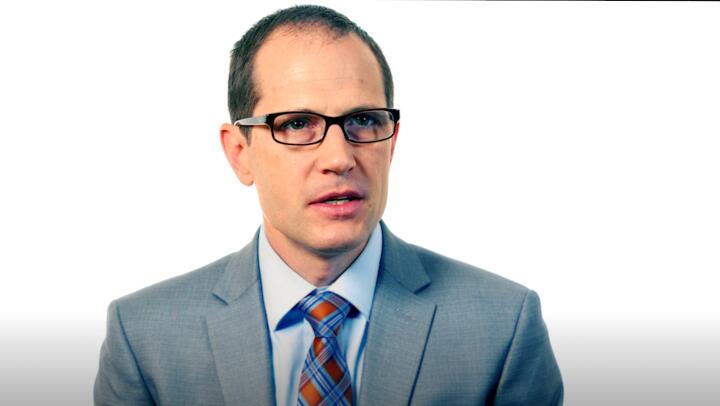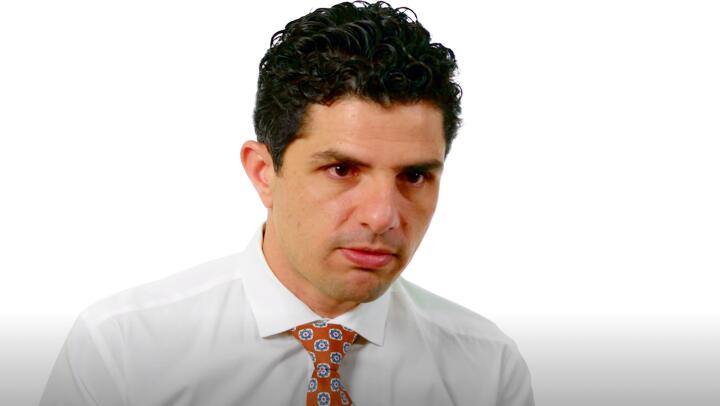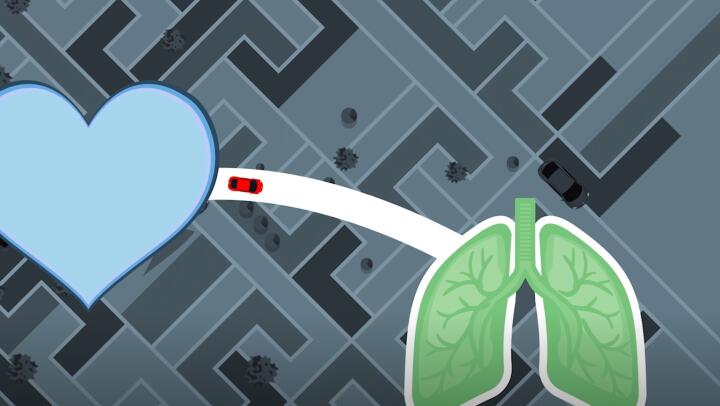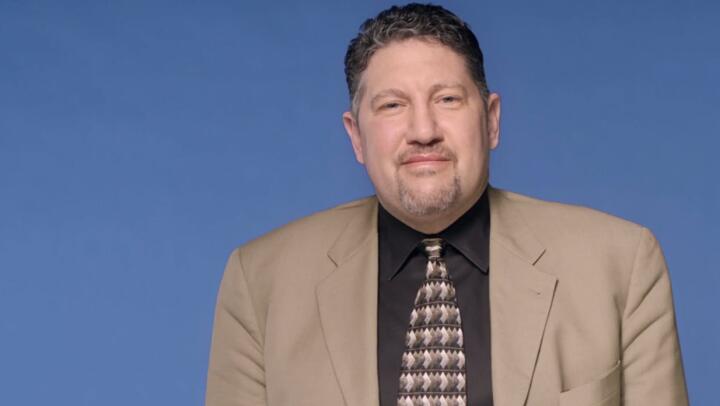PHYSICIAN VOICES
5 Myths About Living With Heart Failure
-
 Know the facts about heart failure.Heart failure is a chronic condition in which the heart fails to pump enough blood through the body, causing significant stress to other organs. Despite the advances the medical field has made in treating heart failure and the increased knowledge now available on how patients can live well with this condition, there are still common misconceptions that can play a big role in the progression of a patient’s heart failure if not addressed properly. Let’s talk about a few heart failure myths.
Know the facts about heart failure.Heart failure is a chronic condition in which the heart fails to pump enough blood through the body, causing significant stress to other organs. Despite the advances the medical field has made in treating heart failure and the increased knowledge now available on how patients can live well with this condition, there are still common misconceptions that can play a big role in the progression of a patient’s heart failure if not addressed properly. Let’s talk about a few heart failure myths. -
 1. Myth: Chest pain is the first symptom of heart failure.In reality, a patient could be living with heart failure long before he or she begins to experience chest pain. Swelling in your legs, fatigue, increased heart rate, and shortness of breath are earlier warning signs that your heart may not be functioning properly. These signs can be especially hard to identify as symptoms of heart failure if the patient is relatively young. While most people associate heart failure with people older than 60, this disease can attack anyone at any age, so it’s important to talk to your doctor about your risk for heart failure.
1. Myth: Chest pain is the first symptom of heart failure.In reality, a patient could be living with heart failure long before he or she begins to experience chest pain. Swelling in your legs, fatigue, increased heart rate, and shortness of breath are earlier warning signs that your heart may not be functioning properly. These signs can be especially hard to identify as symptoms of heart failure if the patient is relatively young. While most people associate heart failure with people older than 60, this disease can attack anyone at any age, so it’s important to talk to your doctor about your risk for heart failure. -
-
 2. Myth: Taking medication means you don’t have to work against other risk factors.Living with heart failure requires a multifaceted approach to treatment that goes beyond taking prescribed drugs. For many patients, heart failure can be successfully managed using a combination of drugs developed to treat both the symptoms and the causes of the condition — especially if caught early enough in the disease’s development. However, medication is usually not enough to prevent the disease from progressing in the long run. Making lifestyle changes like eating a heart healthy diet (reducing salt intake and fatty foods), exercising, and quitting smoking gives your heart the best chance of enduring the disease and functioning properly.
2. Myth: Taking medication means you don’t have to work against other risk factors.Living with heart failure requires a multifaceted approach to treatment that goes beyond taking prescribed drugs. For many patients, heart failure can be successfully managed using a combination of drugs developed to treat both the symptoms and the causes of the condition — especially if caught early enough in the disease’s development. However, medication is usually not enough to prevent the disease from progressing in the long run. Making lifestyle changes like eating a heart healthy diet (reducing salt intake and fatty foods), exercising, and quitting smoking gives your heart the best chance of enduring the disease and functioning properly. -
 3. Myth: If you have heart failure, exercise can be dangerous.While it may seem counterintuitive to some, exercise is one of the best ways to help your heart function properly and keep your body healthy while living with heart failure. A heart failure patient’s ability to exercise is highly individualized, depending on his or her stage of the disease, lifestyle, or age, but in general I recommend any heart failure patient to stay physically active. For this reason, there are lot of heart failure patients that should be referred to a cardiac rehabilitation program, or a program where patients learn how to work out safely and build confidence to continue exercising on their own. The psychological benefits to exercise are also key to living well with heart failure. Exercise has been shown to reduce anxiety and depression — other factors in heart failure’s development. Talk with your physician about exercise options that would be effective in treating your heart failure.
3. Myth: If you have heart failure, exercise can be dangerous.While it may seem counterintuitive to some, exercise is one of the best ways to help your heart function properly and keep your body healthy while living with heart failure. A heart failure patient’s ability to exercise is highly individualized, depending on his or her stage of the disease, lifestyle, or age, but in general I recommend any heart failure patient to stay physically active. For this reason, there are lot of heart failure patients that should be referred to a cardiac rehabilitation program, or a program where patients learn how to work out safely and build confidence to continue exercising on their own. The psychological benefits to exercise are also key to living well with heart failure. Exercise has been shown to reduce anxiety and depression — other factors in heart failure’s development. Talk with your physician about exercise options that would be effective in treating your heart failure. -
 4. Myth: It’s too late to quit smoking and make other changes after a heart failure diagnosis.Some may assume a diagnosis of heart failure is a death sentence, and that making lifestyle changes beyond taking medication aren’t effective enough to reverse the disease’s progression long term. In reality, while you can’t completely undo the damage that was done to your heart while smoking, you can certainly prevent more damage from occurring. Even later in the disease’s development, this can really make a difference in your overall health and lifespan. Quitting smoking is the most obvious change that a patient may need to make, but taking other steps like controlling your blood pressure, watching how much salt you consume, and exercising to keep your heart strong can help you stay healthy while living with heart failure.
4. Myth: It’s too late to quit smoking and make other changes after a heart failure diagnosis.Some may assume a diagnosis of heart failure is a death sentence, and that making lifestyle changes beyond taking medication aren’t effective enough to reverse the disease’s progression long term. In reality, while you can’t completely undo the damage that was done to your heart while smoking, you can certainly prevent more damage from occurring. Even later in the disease’s development, this can really make a difference in your overall health and lifespan. Quitting smoking is the most obvious change that a patient may need to make, but taking other steps like controlling your blood pressure, watching how much salt you consume, and exercising to keep your heart strong can help you stay healthy while living with heart failure. -
 5. Myth: Heart failure is more serious for men than women.Although over last few decades more research has been done on male patients in the realm of cardiology than on females, we know that women actually tend to have worse outcomes than men for all forms of cardiovascular disease, including heart failure. Women have gender specific symptoms for heart disease and heart failure, such as heart complications during pregnancy and pregnancy induced hypertension — which can lead to heart failure. For women, this means that having a comprehensive understanding of heart failure and a multi-pronged approach to living with the condition is all the more important. If you are diagnosed with heart failure and are a woman, make sure you talk with your doctor about any gender specific treatment options and considerations you may need to take.
5. Myth: Heart failure is more serious for men than women.Although over last few decades more research has been done on male patients in the realm of cardiology than on females, we know that women actually tend to have worse outcomes than men for all forms of cardiovascular disease, including heart failure. Women have gender specific symptoms for heart disease and heart failure, such as heart complications during pregnancy and pregnancy induced hypertension — which can lead to heart failure. For women, this means that having a comprehensive understanding of heart failure and a multi-pronged approach to living with the condition is all the more important. If you are diagnosed with heart failure and are a woman, make sure you talk with your doctor about any gender specific treatment options and considerations you may need to take. -
5 Myths About Living With Heart Failure


























